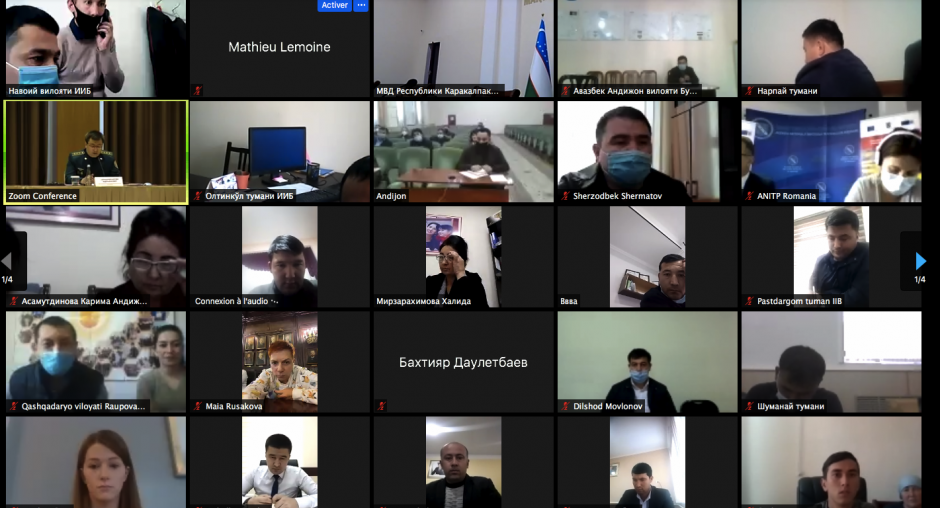Role of National Referral Mechanisms in combating human trafficking focus of roundtable discussion organized by OSCE Project Co-ordinator in Uzbekistan

Challenges, lessons learned and good practices in the use of National Referral Mechanisms to counter human trafficking were discussed at a roundtable discussion on 29 October 2020. The blended event was co-organized by the OSCE Project Co-ordinator in Uzbekistan, jointly with the OSCE Office for Democratic Institutions and Human Rights (ODIHR) and the National Anti-trafficking Commission of Uzbekistan.
Representatives from the National Anti-trafficking Commission, the country’s Interior Ministry and civil society highlighted key aspects of the national legal and policy framework to counter human trafficking and the assistance provided to victims.
“When people think of trafficking in human beings they tend to make an emphasis on law enforcement, prosecution and criminal justice system. In reality, the most important aspect of protecting victims’ rights both inside and outside of the criminal justice system tends to bring less attention,” said OSCE Project Co-ordinator in Uzbekistan John MacGregor.
“Therefore, it is important to strengthen policies to protect trafficked persons, consistent with international human rights standards. Recently, upon the request from the Uzbek Government, the OSCE Project Co-ordinator jointly with ODIHR, assisted the National Anti-trafficking Commission with the recommendations on further developing the National Referral Mechanism for human trafficking victims to ensure that it would be in compliance with OSCE commitments and international human rights standards. The Policy Document on National Referral Mechanism with recommendations is ready and I am happy to share them with the Uzbek Government today.”
Over the course of the discussion, experts from the United Kingdom’s Office of the Independent Anti-Slavery Commissioner, Bulgaria’s National Commission for Combating Trafficking in Human Beings, Romania’s National Agency against Trafficking in Persons, and Sweden’s Gender Equality Agency shared their experiences.
